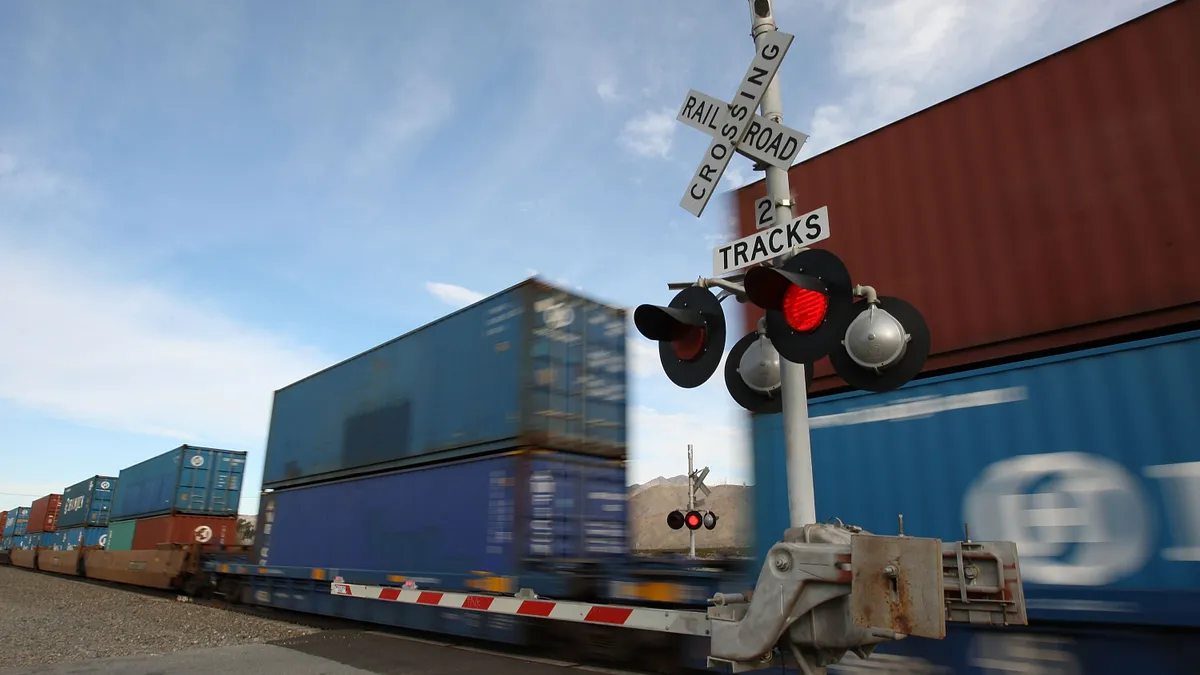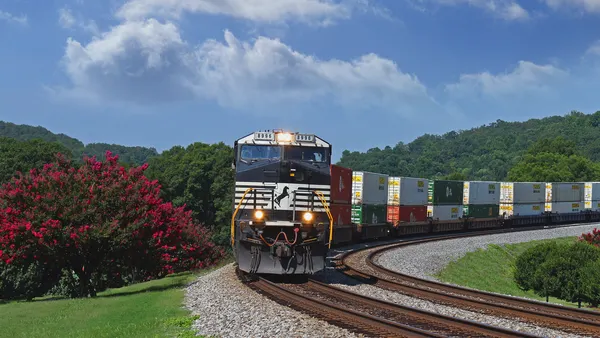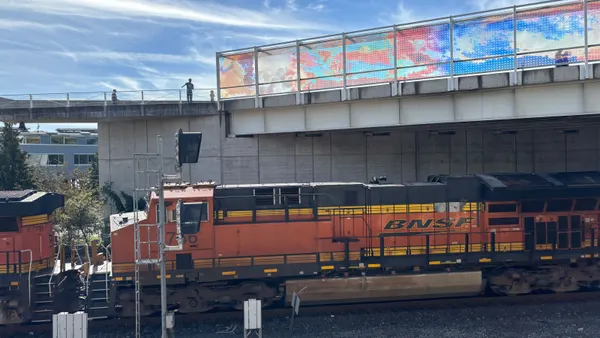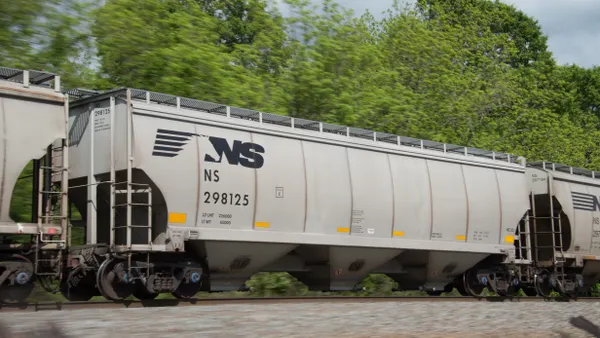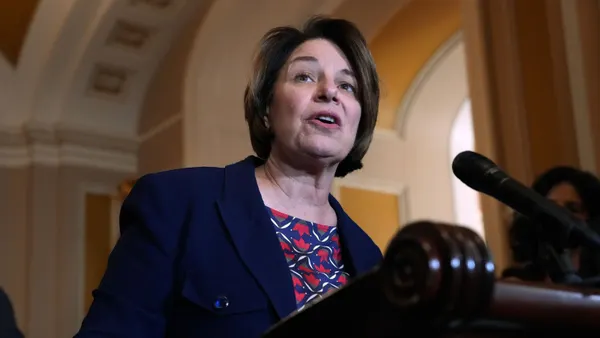Federal regulators will closely monitor railroads’ use of embargoes following uproar over a major carrier’s move to limit traffic in the upper Midwest.
Surface Transportation Board Chairman Marty Oberman said Thursday that regulators have seen an increasing use of embargoes as a way to control congestion not caused by natural disasters or circumstances out of a railroad’s control.
“It is really becoming a major concern,” the chairman said during a moderated conversation at the Midwest Association of Rail Shippers Winter Meeting in Lombard, Illinois. “And it hasn't stopped.”
His comments come days after Union Pacific announced it would extend a “catastrophic embargo” throughout the Minnesota, Iowa and Wisconsin region until approximately Jan. 25.
The traffic limits, first put in place Dec. 29, have strained agricultural producers in particular. Foster Farms, for example, told the STB that embargoes had at one point left the company no choice but to stop feeding its dairy cows due to critically low supplies of corn.
Union Pacific contends the embargoes are necessary due to winter weather events across the upper Midwest, though it’s taking longer than expected to restore the network. The railroad is still handling critical shipments and some other traffic based on a permit system.
“Although incremental progress has been made in reducing congestion and increasing velocity across the region, we are seeing longer than anticipated recovery due to the magnitude of the prior weather impacts,” the railroad said in a letter to customers Jan. 11.
Some have questioned Union Pacific’s reasoning. A group of eight congressional lawmakers representing the upper Midwest petitioned the STB to direct Union Pacific to lift the embargo, noting temperatures are not abnormal for this time of year and that the railroad has successfully navigated similar weather events in the past.
“The delays resulting from Union Pacific's embargo and subsequent inadequate service for their customers is unacceptable,” the lawmakers wrote in a Jan. 13 letter.
While the STB has seen other railroads up their use of embargoes, “they're not even in the same order of magnitude” as Union Pacific, Oberman said at the MARS event. Union Pacific executives were grilled over the company’s use of embargoes during a two-day hearing last month, but Oberman hinted that the board could take further action in the future.
Limiting traffic as a way to control congestion caused by lack of crew or other avoidable issues directly implicates the common carrier doctrine, the chairman said, which allows regulators to oversee service and rates when it is in the public interest.
“What that means and what — if anything — we should do about it remains determined,” Oberman said. “But I think there's an intersection now, and I anticipate that this is going to be a problem thrust upon us to deal with.”



